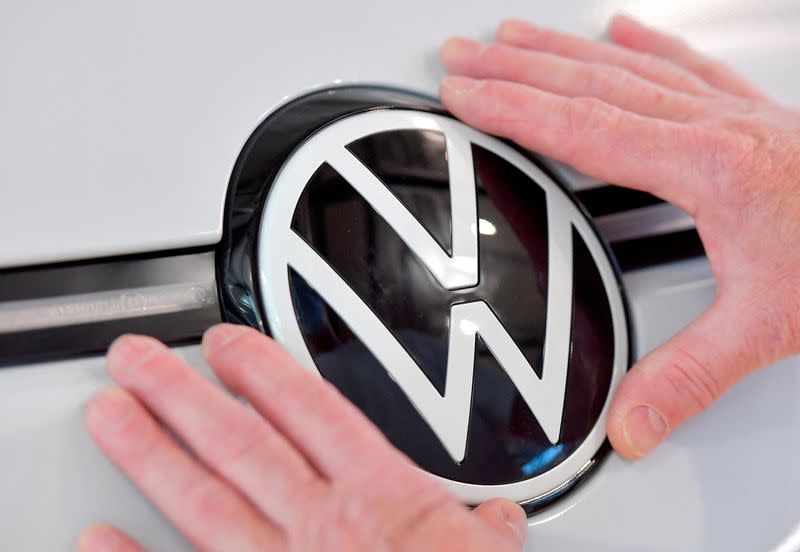VW masters dry-coating battery process with potential to slash cell costs

BERLIN (Reuters) - Volkswagen and a technology partner have mastered a battery manufacturing process called dry coating which if scaled up could cut the cost of cell production by hundreds of millions of euros a year, its battery chief said on Friday.
The carmaker, which is working with printing press manufacturer Koenig & Bauer AG on the technology, said the two companies are the first to perfect the procedure for both the positive and negative electrode.
"No-one else can do this today," battery chief Thomas Schmall said at a media roundtable.
In traditional battery manufacturing, materials for the cathode - or positive electrode - and anode - negative electrode - are applied to a carrier foil via a chemical paste mixture that needs to dry, requiring high amounts of energy.
Dry-coating eliminates that step with an adhesive that does not require drying, Schmall explained.
Tesla, which obtained a similar process through acquiring startup Maxwell Technologies in 2019, has so far been able to dry-coat the anode, but is still having issues with the cathode, sources told Reuters in March.
Volkswagen said it has produced several hundred cells with its method on a pilot line and should be ready for industrial production by 2027.
Together with scaled-up production and cheaper raw materials, the carmaker hopes the procedure will help bring down cell costs by around 50%, Schmall said.
Its cell plants under construction in Germany, Spain and Canada will still have drying lines but can be retrofitted to remove them at a later date, PowerCo Chief Operating Officer Sebastian Wolf added, freeing up around 15% of factory floor space.
(Reporting by Victoria Waldersee; Editing by Rachel More and Jan Harvey)

 Yahoo Finance
Yahoo Finance 